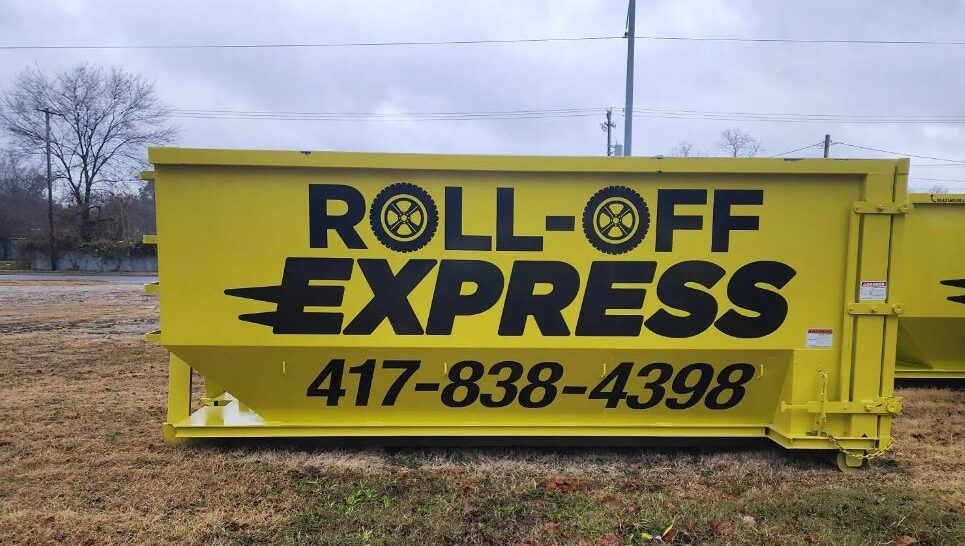What To Do After a Storm? Tips To Save You Money and a Headache
After a storm, quickly assess your property for visible damage like fallen branches and broken windows. Document everything with photographs and create a list of damaged items, including their value. Avoid making major repairs until your insurance company investigates the damage. Hire local contractors instead of storm chasers for quality repairs. Consider renting a roll-off dumpster for debris, which may also qualify for reimbursement. Stick around for more essential tips on navigating the aftermath efficiently.
Assessing the Damage to Your Property
After a storm passes, your priority should be assessing the damage to your property. Start by walking around your home and taking note of any visible damage, such as fallen branches, roof leaks, or broken windows. Document everything you find, as this information will be crucial for future steps. If the debris is overwhelming, consider renting a roll off dumpster to efficiently dispose of materials you can’t salvage. This will help keep your property safe and organized as you work through the recovery process. Pay close attention to potential structural issues, as these can escalate quickly. By addressing damages promptly, you’ll minimize further complications and protect your investment in the long run.
Tips and Documenting Everything for Insurance Claims
While you assess the damage, it’s crucial to start documenting everything for your insurance claims promptly. Begin by taking clear photographs of all broken items and structural damage caused by the storm. Capture wide shots to show the overall impact and close-ups to detail specific issues. Make a list of damaged belongings, including their approximate value and purchase date. Note any expenses incurred due to the storm, like temporary repairs or accommodation costs. Keep receipts and be organized; consider creating a folder for all related documents. Finally, contact your insurance company soon after the storm to report the damage and provide your documentation, ensuring a smoother claims process. This proactive approach can help you recover faster.
Don’t Make Any Majors Repairs, Yet
Once you’ve documented the damage and contacted your insurance company, hold off on making any major repairs. Make sure its safe before you start as well. It’s crucial to allow your insurer to assess the situation first. They need to evaluate the extent of the damage to determine what’s covered. If you rush into repairs, you might inadvertently hinder the claims process, or worse, miss out on compensation for damage you didn’t realize was significant.
Be cautious of storm chasers, contractors who may pressure you to make quick decisions. Instead, focus on what to do after a storm: prioritize communication with your insurance and keep all evidence organized. Once you receive guidance from your insurer, you’ll be better equipped to make informed decisions regarding repairs.
Hiring the Right Professionals for Repairs
Hiring the right professionals for repairs is essential to restoring your property effectively and safely. After a storm, you may encounter storm chasers, contractors who travel to affected areas, often offering quick, low-quality fixes. Instead, focus on local contractors who understand your community and its specific needs. They’re more likely to provide reliable service and quality workmanship. Research their credentials, read reviews, and ask for references. Always request a detailed estimate and ensure they’re licensed and insured. By choosing local contractors, you support your community while safeguarding your investment. Avoid the temptation of quick fixes from storm chasers; they can lead to more headaches and expenses down the line. Prioritize quality and trust when selecting professionals for your repairs.
Roll Off Dumpsters May Also Qualify for Reimbursement
After a storm, dealing with debris can be overwhelming, but renting a roll-off dumpster can streamline the cleanup process. These dumpsters allow you to efficiently manage the wind-blown debris without cluttering your property. Not only does it save you time, but you might also be eligible for reimbursement through your insurance. Many policies cover costs associated with storm damage cleanup, including rental fees for dumpsters. To qualify, document the storm’s impact and retain all receipts related to the cleanup. Contact your insurance agent to understand your coverage specifics. By being proactive and organized, you can not only simplify the cleanup but also potentially recoup some of your expenses. It’s a practical step in managing storm aftermath effectively.
Frequently Asked Questions
How Long Does It Take to Process an Insurance Claim After a Storm?
It typically takes insurance companies anywhere from a few days to several weeks to process claims after a storm. You should stay proactive, providing all necessary documentation to expedite your claim and facilitate faster resolution.
What Should I Do if I Notice Mold After the Storm?
If you notice mold, act quickly. Identify the source of moisture, remove affected materials, and clean surfaces with a mixture of water and detergent. Ensure proper ventilation to prevent future growth and protect your health.
Can I Use My Homeowner’s Policy for Temporary Housing Costs?
Yes, you can often use your homeowner’s policy for temporary housing costs if your home becomes uninhabitable. Review your policy’s specific terms and contact your insurance agent to clarify coverage and file a claim promptly.
What Steps Should I Take if I Have No Insurance?
If you have no insurance, start by assessing damage carefully. Document everything, seek local assistance programs, consider community resources, and explore government aid. Prioritize safety and create a budget for immediate repairs and necessities.
How Can I Prevent Storm Damage in the Future?
To prevent storm damage, you should regularly inspect your property, trim overhanging branches, reinforce windows and doors, and ensure proper drainage. Investing in quality materials and maintenance will save you significant costs in the long

